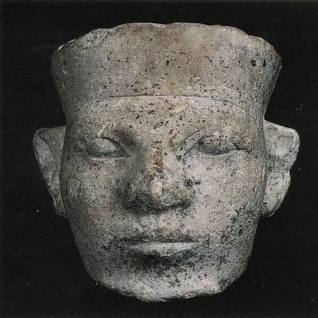
Baggini has written a piece in Prospect magazine ‘ Is the University of Edinburgh right to “cancel” David Hume?’ 15 Sep 2020. He is seeking to defend Hume from accusations of racism while accepting his ‘unfortunate’ statements. He writes:
‘Hume was both a product of his time and like people of every time, had his blind spots.’ This statement implies that Hume’s views were uncontroversial during his time. This is completely untrue. His views were seriously challenged and Hume failed to adequately respond to these challenges. Baggini then writes: ‘His empiricism and scepticism made him “suspect” whites were superior rather than confidently assert that they were.’ This too is completely untrue. Here Baggini is seeking to make mileage out of the form of expression, implying uncertainty. That form of expression does not imply uncertainty and was not so understood at the time.
Further, scholars have shown that not only was Hume’s views not based on empirical evidence but that his view were empirical disproven on his time yet Hume did not retract his views.
As Richard Popkin wrote ”In fact, as one of the matters I shall argue for in this paper, Hume’s racist contention was disproven in his own day by empirical evidence that he must have known about” and more recently Waldeman, a historian specialising in Hume, has written: ‘Hume was an unashamed racist, who was directly involved in the slave trade.’
This raises a far more interesting question: the racism in British philosophy departments today.
Waldeman wrote on 17 July 2020 ‘It could be argued that holding Hume to the standard of a later age would be unfair… But this argument is absurd.’ Yet on 15 September Baggini asks: ”why did he encourage a friend to invest in a plantation that he would have known was worked by slaves, “ as if the slavery on the plantation was not the raison d’etre of the plantation?
Hume also made obnoxious remarks about the Irish in his History of England and refused to retract when a delegation presented contrary evidence to him. Baggini ignores this.
Frankly, there is a reason Hume became the patron saint for the ante-bellum pro slavery lobby.
It is for a non philosopher like the historian Waldeman ‘obvious’ that Hume was an ‘unashamed racist’ given the historical record. But for British philosophers this is not so. I would suggest that the reason for the differential perception is the genteel racism in British philosophy departments today – they share Hume’s views. This is a racism that is largely unspoken and sometimes unacknowledged but is surprisingly blatant to any outsider. On this I can present even my own recent experience. Baggini is academic director of the Royal Institute of Philosophy. After the 2019 annual lecture by Prof Pettit a group moved towards a dinner. Several academics expressed a wish to continue discussions with me following a question I had posed to Pettit so I followed. As a group we all walked for 15 minutes towards the restaurant. Suddenly, at the door of the restaurant Baggini barred my way. He said he had no budget for my presence. However the look on his face made it clear that this was not about the money. I was dressed in a City suit so clearly I could afford my own dinner and in any case was not expecting a ‘free lunch’. But his face was firm and brooked no further discussion. I was not welcome. As I left another academic who wanted to continue the discussion tried to intervene but I had no stomach for a scene and left. Bear in mind that this is not customary behaviour. In my days at Cambridge Philosophy dept if someone asked an interesting question they might be summarily invited to the post talk dinner and this had happened to me on numerous occasions. Let me put this plainly, racism in British philosophy does not generally exhibit itself in outright remarks (however see below!) but in a general ambience that makes the place unwelcoming or to quote Theresa May, British philosophy departments are a ‘hostile environment’ to Black people.
Any doubts I may have had about Baggini’s attitude to me were cast aside when he openly and publicly declared that he no longer wanted me to ask questions at the Royal Institute’s public philosophy lectures. I had asked one question only at a time at these lectures. However on many occasions the speaker was unable to provide an adequate answer and their facial expression said as much. For whatever reason the attendance at these obscure lectures had started to balloon. Certainly there was no evidence that my questions were frightening away the audience. I mention these episodes not to single Baggini out but to provide colour for the accusation that the general ambience of British philosophy has an undertone of plain anti Black racism. It is because of those who are not racist (the academics who wanted to continue the discussion with me) that the genteel racism is starkly highlighted. This is not just about Baggini. At a specialist conference at University College, London some years ago the late LSE Professor John Watkins publicly stated that Africans cannot think properly. He was unaware of my presence until the host nodded to him in my direction at which point Watkins became greatly embarrassed and fled the conference..
Hume’s Tower is an interesting issue. British philosophy departments today and their racial hostility – that is the real issue.
Notes~:
Richard Popkin: Hume’s racism reconsidered in The Third Force in Seventeenth Century Thought’ Brill 1992

